US POLL ANALYSIS
American midterm election puts democracy in the crosshairs
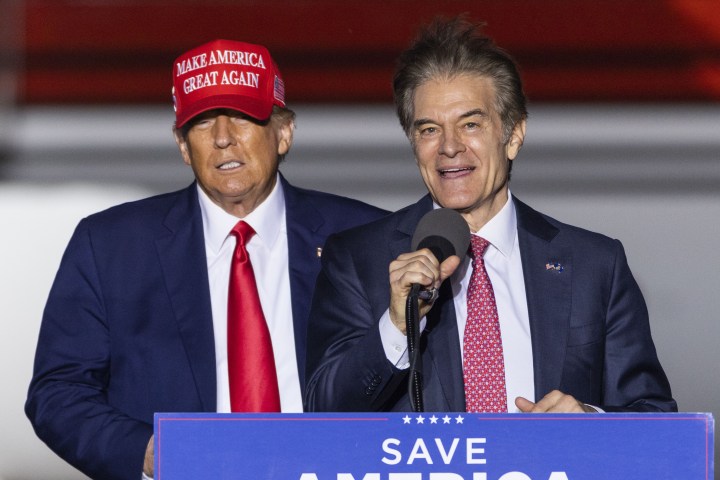
History shows social discontent is always present — and eruptions of it will break through with unpredictable effects. Americans must now confront their own moment of such things as they steel themselves for a midterm election on 8 November.
A few years ago, this author set out the idea that we were living in an era of “stochastic populism”. This was put forward as somewhat different from the more commonly seen term, “stochastic terrorism”.
The idea of “stochastic” comes to politics and society from the scientific disciplines of geology and volcanology. In those scientific fields, what it refers to is that although it is entirely predictable that magma (the layer of malleable, super-heated material under the Earth’s crust) will break through and erupt as a volcano or lava flow, it will happen at unpredictable times — and at less-than-predictable locations. But it will happen; nature will find a way.
An appreciation of the impact of stochastic terrorism includes an understanding that social discontent is always present — and eruptions of it will break through with unpredictable effects.
Although it is impossible to predict specific occurrences with any certainty, some discontent will, perhaps inevitably, break through from below, especially when groups and individuals are intent on using terror tactics in the furtherance of a political agenda.
Stochastic populism, by contrast, speaks to broader outbreaks fuelled by populist political agendas coming to life and rising up — sometimes from the left, sometimes from the right, and sometimes as part of movements that are difficult to categorise easily.
What is clear is that those eruptions of stochastic populism are expressions of anger or rage about injustices, real or imagined, that often become vigorous social and political movements that often move beyond their origins.
Centenaries of discontent
This kind of thing, of course, is not new, nor should it be seen as something of purely academic or historical interest. As it happens, 2022 marks the 100th anniversary of two consequential events. Their trajectories mean we must be prepared for the possibilities of such activities in our own future, especially with the growing uncertainties and disruptions all around us.
In 1922, four years after the end of World War 1, Italy, which had been on the winning side of the Allies, was worried about the country’s unsteady economic circumstances. Many Italians were deeply angered about what populist politicians termed a deeply unfair peace settlement. There had been an insulting share of the territories wrested out of the Austro-Hungarian empire as it disintegrated.
After all that battlefield struggle that had cost so many lives and so much treasure, the payoff had merely been the Alto-Adige territories, the Istrian Peninsula, the ports of Fiume and Trieste, and the small enclave of Ragusa on the opposite side of the Adriatic. The Italians had demanded a much more impressive territorial settlement.
The former soldier, journalist and mesmerising crowd-pleasing chancer Benito Mussolini and his followers descended on the towns and cities of the country, culminating in the March on Rome.
With thousands of disgruntled ex-soldiers and others in his crowd, Mussolini met the Italian king, who asked him to lead a government to replace the ineffectual leftwing parliamentary government then in power.
As The Guardian reported on the events back in 30 October 1922:
“At the moment when Mussolini, the leader of the Italian fascisti, was seizing control of the country by force, the government’s authority has been placed in his hands by the king, who yesterday asked him to form a cabinet. On Saturday, while Mussolini ordered a general mobilisation of his more or less armed force of nearly half a million men, the cabinet decided upon measures of resistance — with certain reservations. The military were ordered to hold Rome against attack, but to give some latitude to the revolutionaries in the provinces. Martial law was ordered to be proclaimed throughout the country from midday on Saturday, but before the day was out the order was rescinded. The situation had become too bad for remedy, and the king, recognising this, refused to sign the decree.”
In what was, effectively, a virtually bloodless coup, Mussolini’s success became the harbinger, role model and goad to other would-be populist leaders. What followed was more than two decades of fascist turmoil, authoritarian rule, almost uncountable civilian and military deaths, as well as military struggles around the globe.
Not to put too fine a point on it, even though Georgia Meloni, the country’s new prime minister, has denied she is a latter-day Mussolini, she now leads a government with a decidedly right-wing tilt that came to power on a populist wave.
That right-wing, populist temptation remains ready to come to the surface in many places.
Hardening of the battle lines
The year 1922 is also the date of another event closer to South African history. This was the miners’ strike on the Witwatersrand gold mines, sometimes called the Rand Rebellion.
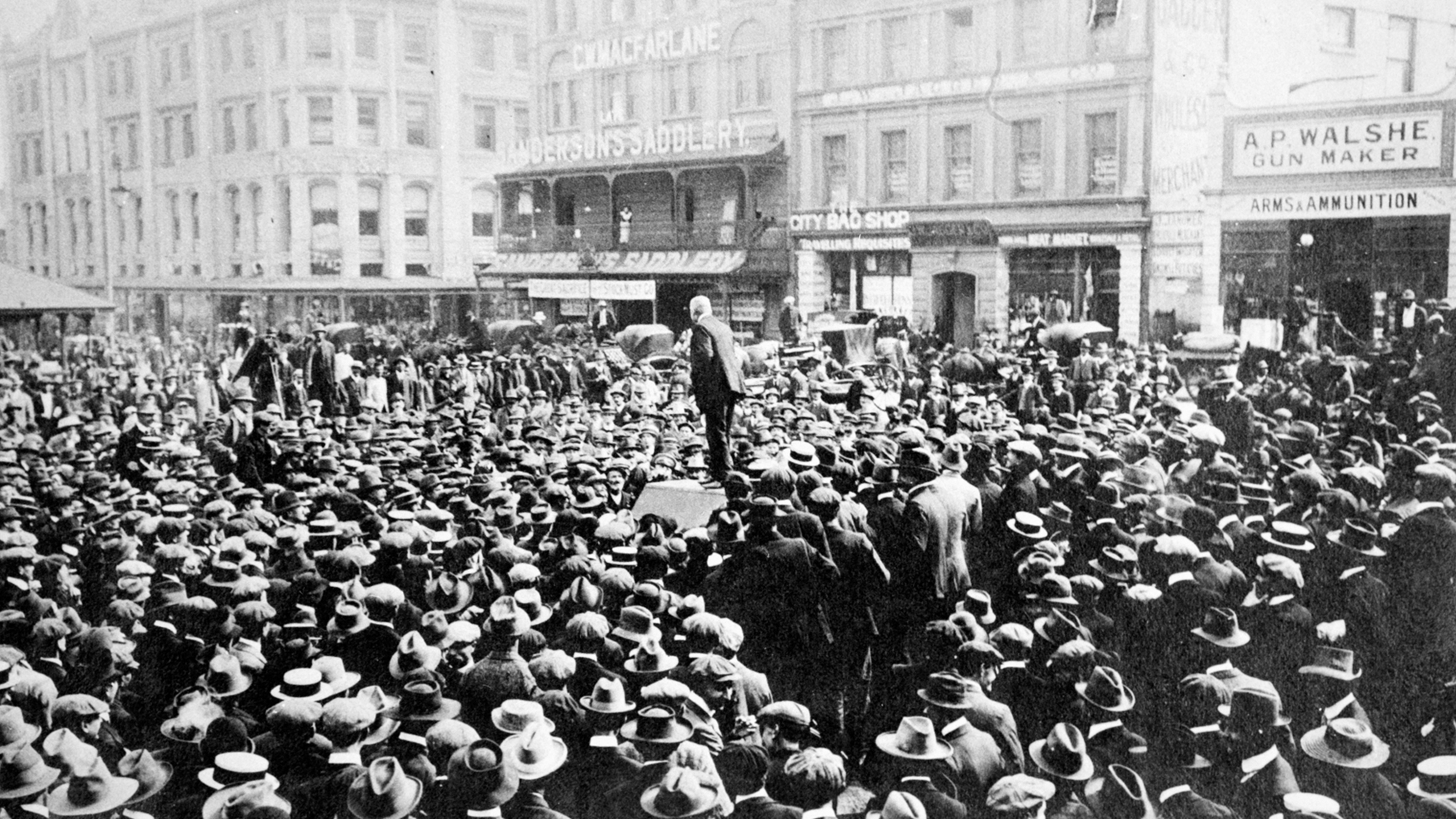
Strikers gather during the Rand Rebellion, Market Square, Johannesburg, 1922. (Photo: Museum Africa)

Strikers being taken into custody in Fordsburg, Johannesburg, during the Rand Rebellion, 1922. (Photo: Wikipedia)
After the discovery of gold in 1886, the South African gold mines were, by 1920, being buffeted by a fall in the international gold price, even as mine operators were increasingly concerned with finding cheaper labour and not rocking the job division based on racial segregation.
Mining houses imported lower-cost Chinese labourers desperate for wages and work, announced plans to make more skilled jobs open for black miners, and attempted to cut wages for white workers.
By early 1922, in the face of these challenges, white miners went into an open revolt against both the mining houses and the government, with the latter even using its nascent airforce to bomb the strike leaders into submission.
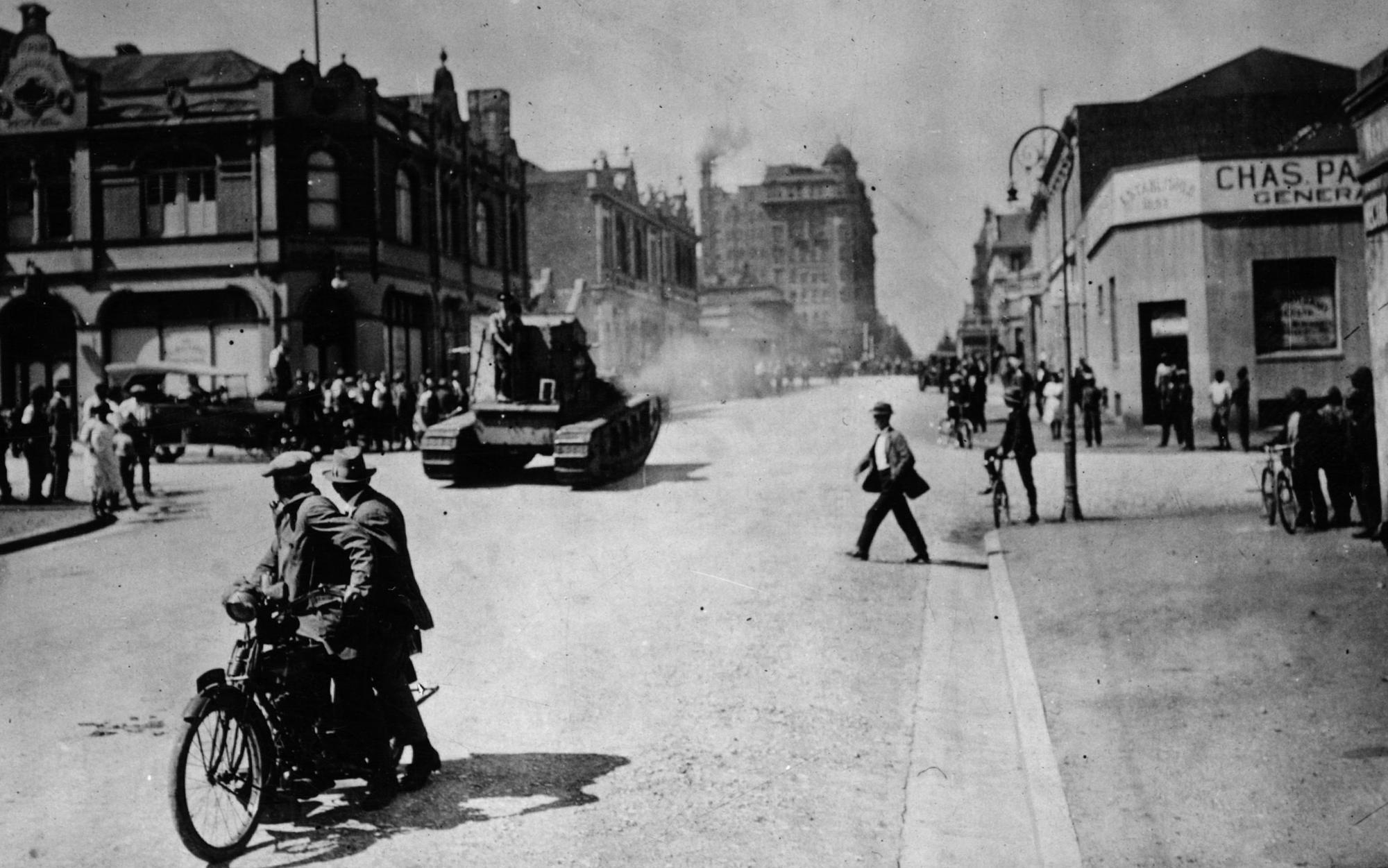
1925: The tank that played a prominent role in the Johannesburg rebellion, where union unrest erupted in the Rand Revolt, in which white workers, fearful of being replaced in the mines by lower-paid non-white workers, staged a bloody strike that was ended only by the intervention of government troops. The tank is seen passing Corner House, the Head Office of the Chamber of Mines and the Johannesburg Consolidated Investment Corporation. (Photo: Topical Press Agency / Getty Images)
The Communist Party of South Africa (CPSA) threw its support to the strikers and its rallying cry was: “Workers of the world, fight and unite for a white South Africa.”
By the time the strike was crushed, more than 200 people had been killed and the emerging racial landscape on the mines had further hardened. The resulting settlement was the palimpsest for a more rigorous, onerous and comprehensive racial order that became a fixture of the increasingly urban, industrialised South Africa.
Afterwards, as an uneasy calm returned to the Witwatersrand, the CPSA’s earlier statement provoked a debate in the party and among its supporters, who were now worried they had picked the wrong horse.
In the end, the party changed its public position on race — and even its name from the CPSA to a new South African Communist Party — to distance itself from a sullied reputation in the eyes of black South Africans. This influenced the way other communist parties positioned themselves internationally.
Trump’s political striptease
It could be probably horrifying to consider how these events could have played out in a 21st-century landscape, what with its 24/7 news landscape and the pervasive but corrosive social media.
Oh wait, Americans, among others, are now living in just such an experiment and it is evolving right before us. (The authoritarian temptations in Russia and China seem rather different — their respective leaders have already been in place via other means and they are increasing their hold on the respective nations, rather than responding to and egging on any stochastic populism rising up from below.)
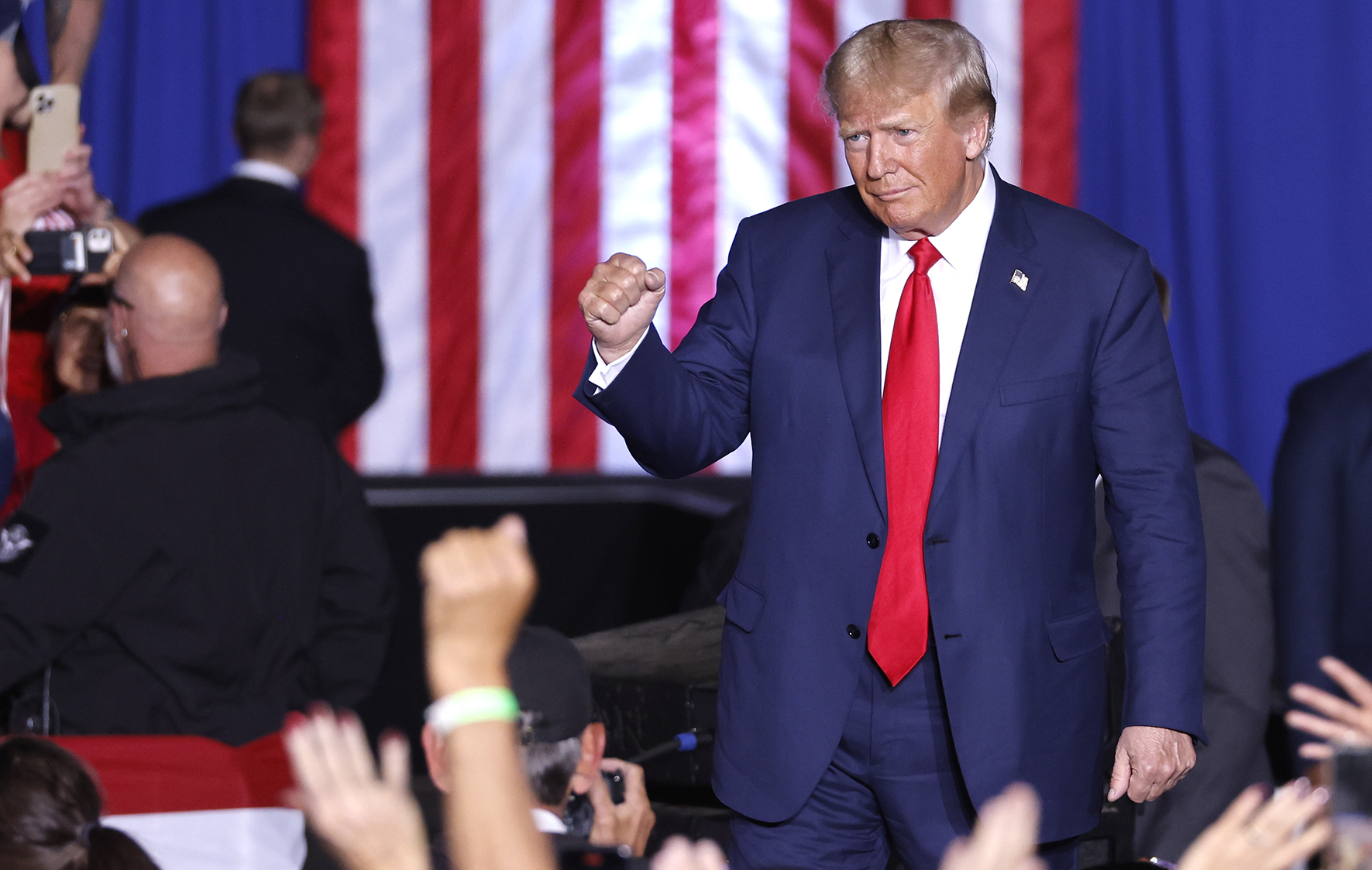
Former US President Donald Trump greets supporters at the start of the Save America rally at the Minden-Tahoe Airport in Minden, Nevada, US, on 8 October 2022. (Photo: EPA-EFE / Peter Dasilva)
But in the US, ex-president Donald Trump has been carrying out a political striptease. He is trying out new provocations to taunt his would-be opponents in the Republican Party as well as Democratic Party candidates, and speaking on behalf of the Republican candidates at congressional and state office levels that he had a hand in selecting. He is trying to ride that populist impulse that was so much a part of his earlier electoral runs.
With just days to go before America’s midterm election, Trump is at the edge of announcing a new presidential campaign. According to persistent reports, he is only waiting for the 8 November election to take place before he formally announces his decision.
Of course, wanting the nomination and then an electoral triumph remain very different to actually surviving such a marathon — and many things can still trip up a candidate like Trump. Even an event like the 6 January insurrection at the Capitol Building would be no guarantee of Il Duce-style success. Not the least of Trump’s problems now include his troubles with numerous criminal and civil legal cases at federal and state levels, and the fact that money raised for a campaign must be properly accounted for within campaign rules once he is a declared candidate.
There is also how the next generation of other Republican, would-be candidates feel about Trump’s next round of threatened chaos in the race for the 2024 nomination.
Visit Daily Maverick’s home page for more news, analysis and investigations
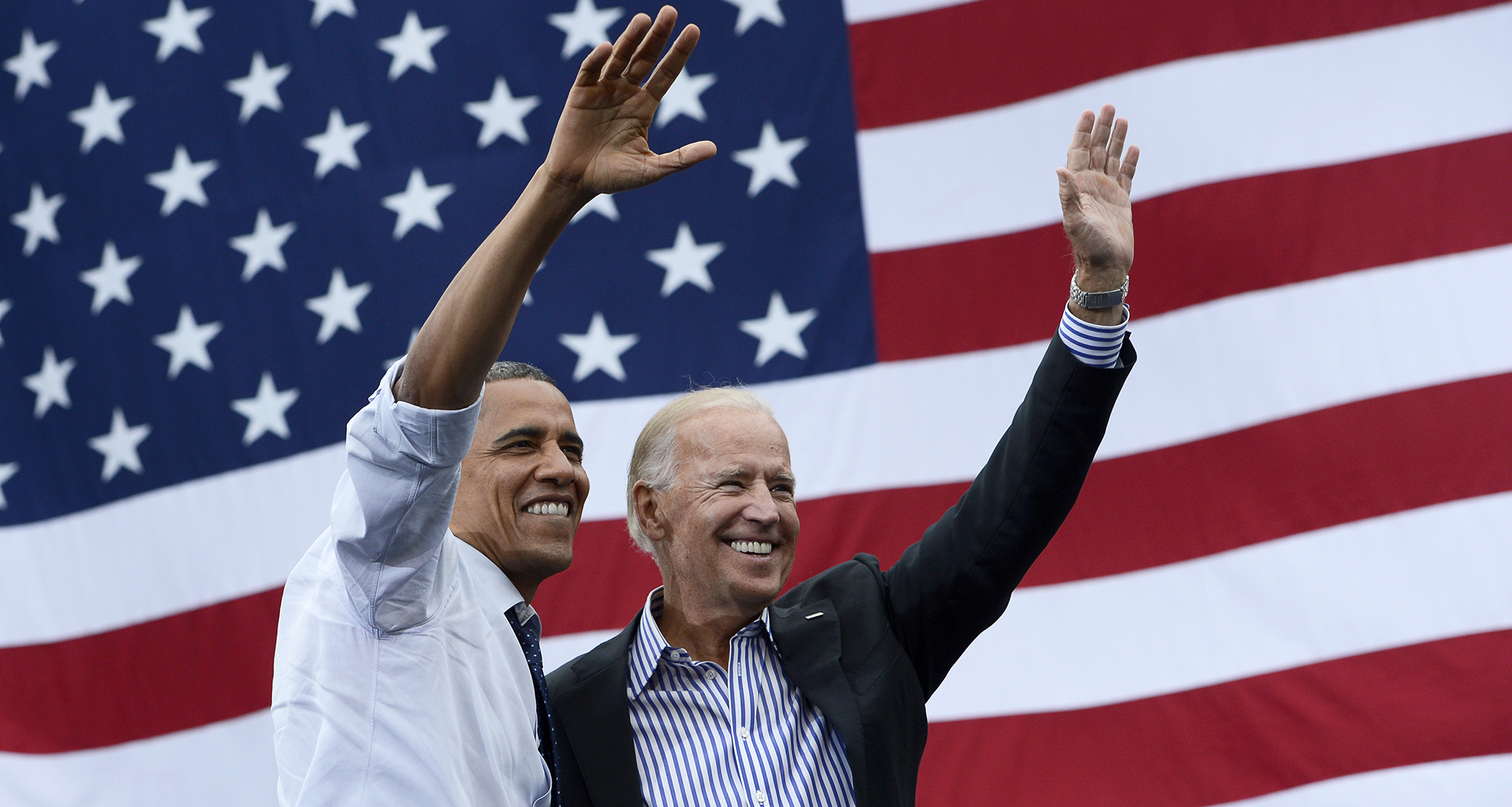
Former US president Barack Obama, left, and President Joe Biden. (Photo: EPA-EFE / Shawn Thew)
This author agrees that both President Joe Biden and former president Barack Obama were correct to have spoken out over the past several days to say this election is about the success and preservation of a democratic order.
Even though this core value is not specifically on the ballot, with things as they are now, the concept of democracy is up for grabs. There is a slew of candidates who seem determined to denigrate the very idea of a democratic compact or the concept that it is an election that determines who is elected, rather than mob action and active efforts to dissuade people from voting, or vexatious, frivolous lawsuits, filed in courts across the nation.
If the polling is correct, however, closer-to-home concerns about the economy (inflation, the price of petrol), crime rates and immigration flows are seen by a major share of the electorate as more important than preserving democratic principles, values and ideas.
In a nation where resentments on the part of Trump supporters continue to well up like magma through the crust of the political system, a candidate who is like a WASP-style caudillo seems positioned to ride such feelings.
And such a candidate, in the upcoming presidential campaign, will certainly attempt to tap those feelings — and nurture and encourage them yet further. We have a hard couple of years ahead of us. DM



















 Become an Insider
Become an Insider
Comments - Please login in order to comment.